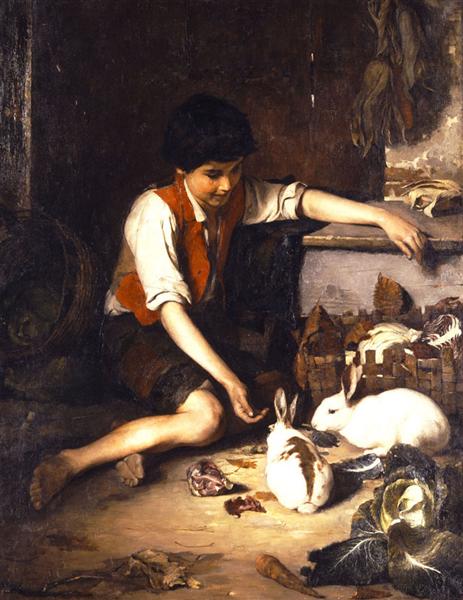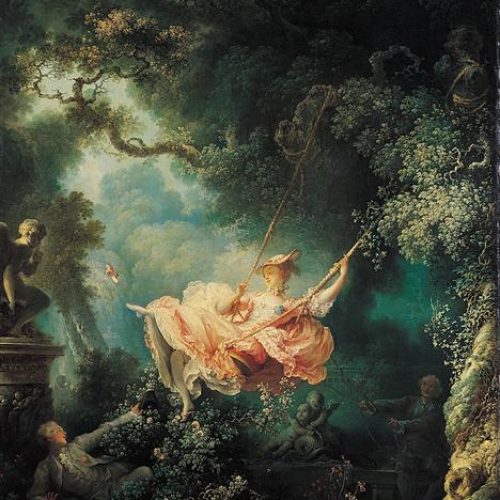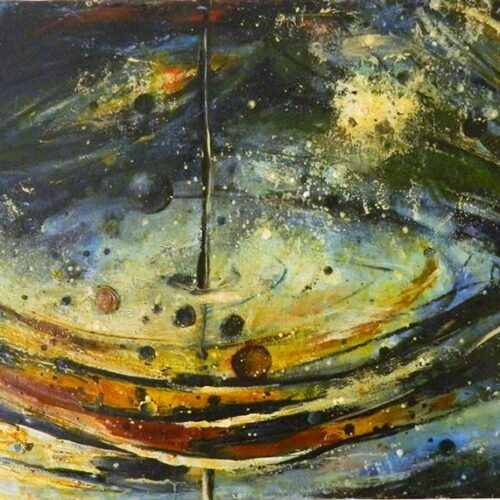Here, I am going to describe the situation of the child at the “imperial” stage according to the work of Robert Kegan, who has combined the developmental theories of Jean Piaget, Lawrence Kohlberg, and many others to create a theory of self-evolution. This article focuses on describing the “holding environment” of the child just before he or she reaches adolescence. This means, rather than focus on the process of development, this article focuses on how an environment can allow for a starting place to evolve.
These holding environments need to be understood by institutions, parents and counselors to provide the foundation for continued development. We, as parents and purveyors of culture, need to see and confirm how a child sees the world before he or she can grow to a more matured state.
The “imperial self” stage tends to be around the preadolescent ages. It is characterized by the child’s embeddedness in his or her needs, unable to articulate them, but acts according to them. The child can now recognize the intentions of others; the burgeoning of theory of mind has come as a result of the prior stage. The child also recognizes himself as a potential person in the future, who he knows similarly to how he knows the minds of others.
Understanding the holding environment of a child at this age may help us to know what to provide for her, how to empathize, and recognize the problems she faces in the way she sees the world. This article follows an article written by Karen Eriksen summarizing the theory of Robert Kegan. Any unattributed quotes should be assumed to be from this article.

Being Subjectively Embedded in Needs
The most primary aspect of this stage of life is the child’s embeddedness in her own needs. The way that the world is seen is through the lens of “how to I achieve the ends that I desire?” To us, this may sound like a selfish person, but that judgement holds the child to an adult standard that could hurt his growth out of this egotistic phase.
“The children [at this stage] are subject to their needs, wishes, and interests, while they are able to make their impulses and perceptions object. The ability to make impulses object results in the capacity to both experience ambivalence between impulses and regulate competing impulses.”
Being subject to or embedded in needs means that the child cannot see her need but acts according to them, taking up hobbies, being a part of friend groups, and exercising the ability to move in the physical and social world. Morality for this stage is defined as what get me closer to what I want.
Roles, Perspectives, and Theory of Mind
Despite the egocentric mind of the child at this age. She still knows that others have mind that are different from theirs (kids much younger assume that other people have their same perspective). Before the child recognizes other minds as being equal to theirs, the child uses the knowledge of other minds to gain their needs (they are still subject to their needs). One gets in the head of another, not so that he can empathize, but so that he knows how to get his needs met and allow his pursuit of interests.

“The transformation from the impulsive to the imperial balance during preadolescence is about the birth of the role—that is, the ability to “take the role of the other, to see that others have a perspective” and an existence of their own.”
The previous stage taught the child how to be socialized, to inhibit the impulses that break the parents’ social rules or the rules that are meant to keep the child safe. The discovery behind this is that there are entities who have different intention that my intentions. In the mastery of impulse control, the child learns the concept of other minds, which must be acted upon accordingly to achieve one’s needs.
“During the imperial balance, then, children are aware of others and their needs but have no sense of being responsible to others’ needs. They aim to control the world so as to get their needs met, which includes making deals with others as the means to “purchase” what they need. They worry about consequences or punishment but experience no real guilt. And they need authorities to direct them. They develop and commit to interests and hobbies, sharing these with both friends and family.”
If the child has enough experience in a holding environment, he or she will learn to recognize how people are feeling, which is a tremendous social skill, even if at this stage, it is in the effort of fulfilling selfish needs. Although these social skills are learned in the context of the child achieving his or her own needs, this is the foundation for real empathy and love. But for now, a child may be navigating how to not get caught doing things that result in punishment.
Future Self
As a consequence of being able to understand other people’s minds, one can begin to imagine themselves in the future. If one can imagine the mind of another, one can imagine the mind of “me” tomorrow. According to the work of Hal Hershfield, there is little difference between how you think of others and how you think of your future self.
“They also develop “enduring dispositions”—that is, needs and interests— or notions about themselves that persist through time (self-concept). Their persisting needs or interests translate into their demonstrated commitment to or effort at becoming competent at those things in which they are interested.”
Children at this age can therefore pursue more distant goals. They can make their intentions last longer, becoming more persistent, and work towards bigger projects. Like a child interacts with others to achieve needs, the child will act towards himself to achieve greater needs than the present. The holding environment at this stage helps one to exercises a trust in the future by proving that the future is predictable and stable.
“Fantasies are now about things that are actually possible, just not yet achieved (e.g., becoming a teacher). In many ways, what children during the imperial stage are ‘most centrally about is learning to go to school, learning to live in a world of rules and roles where egocentric behavior is less and less tolerated.’”
As the future self becomes understood and predictable, it gains more importance to the child, one subordinates the “present self” to the future self more easily. Soon the child will realize that treating others mutually, will affect them in the future. Later in life the the child subordinates himself to a future self, he also can subordinate himself to the will of others, the first step to mutual relationships, and more conventional ideas of morality.
Allowing the Imperial Environment
As just mentioned, it is out of the holding environment that the child can grow to create mutual relationships. That should not be underestimated or ignored in the distaste for the stage’s egocentrism. This morality of tit-for-tat or transactional relationships is certainly not where you want development to stop, but for many it does.
By being able to “manipulate” a person to get what you want by doing things like being friendly, helping them out, etc., will reveal to you that your reputation is far more valuable than your expedient needs. So it should be understood that learning how to navigate the social world to achieve one’s needs can actually be a decent morality as long as one is aware of long-term consequences.
The alternative to having this holding environment is seeing the world through your needs but believing that how one acts towards others cannot help you at all. The point of view of others is negated as useless. Sometimes egotistical behavior comes from never having to leave this holding environment, but often it is from never having it.

Those who grow up in harsh and unpredictable environments have a difficult time trusting the future and may never create a reliable image of a future self that one can subordinate oneself to. A child never learns to sacrifice for an uncertain future, he never learns to exchange with others because they are not trustworthy, and he never gets to have the pleasure of working in the world to fulfill his needs and interests. We need to give people in this stage the environment to be held before we expect them to develop.
“The biggest and most unproductive mistake authorities make in response to teens or adults who have not progressed beyond the imperial balance, whether in family, school, or clinical settings, is expecting such people to function as the interpersonal adults they physically appear to be. Such expectations only result in assumptions of willful manipulations, with the attendant blaming, judgments of inadequacy, and fury directed toward the teen or imperial adult. . . Thus, to match or support people at this level, those in the holding environment give clear behavioral instructions and spell out the consequences of following or not following these instructions.”
It is important that while we expect people to reach past this imperial stage, we do not expect people to get past it without a culture that supports predictability that allows people to see how their effort can pay off to their future self and how interactions with others can be satisfying too.



